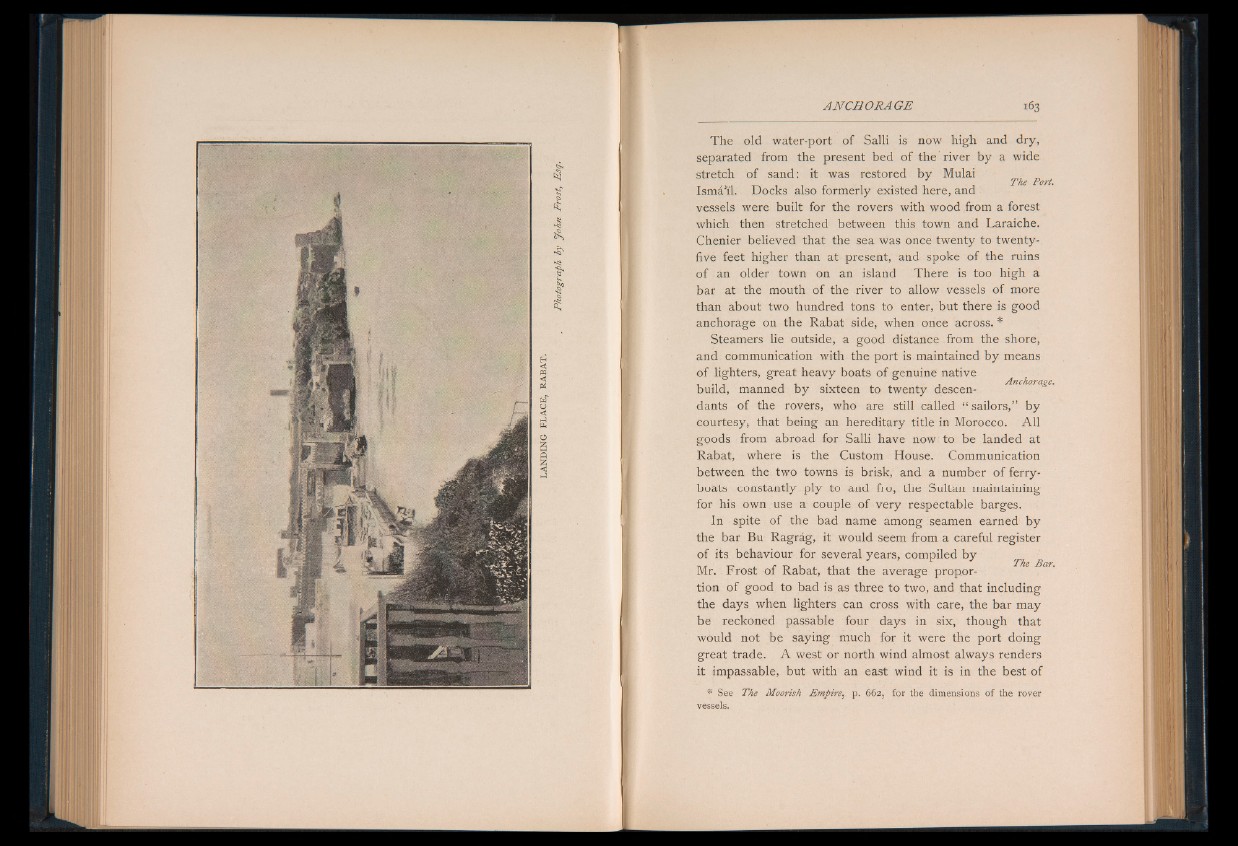
Photograph by John Frost, Esq.
ANCH ORAGE
The old water-port of Salli is now high and dry,
separated from the present bed of the’ river by a wide
stretch of sand: it was restored by Mulai
, . The Port.
Jsmii'iL Docks also formerly existed here, and
vessels were built for the rovers with wood from a forest
which then stretched between this town and Laraiche.
Chenier believed that the sea was once twenty to twentyfive
feet higher than at present, and spoke of the ruins
of an older town on an island There is too high a
bar at the mouth of the river to allow vessels of more
than about two hundred tons to enter, but there is good
anchorage on the Rabat side, when once across. *
Steamers lie outside, a good distance from the shore,
and communication with the port is maintained by means
of lighters, great heavy boats of genuine native
Anchor ap e.
build, manned by sixteen to twenty descendants
of the rovers, who are still called “ sailors,” by
courtesy, that being an hereditary title in Morocco. All
goods from abroad for Salli have now to be landed at
Rabat, where is the Custom House. Communication
between the two towns is brisk, and a number of ferryboats
constantly ply to and fro, the Sultan maintaining
for his own use a couple of very respectable barges.
In spite of the bad name among seamen earned by
the bar Bu Ragrag, it would seem from a careful register
of its behaviour for several years, compiled by
The Bar
Mr. Frost of Rabat, that the average proportion
of good to bad is as three to two, and that including
the days when lighters can cross with care, the bar may
be reckoned passable four days in six, though that
would not be saying much for it were the port doing
great trade. A west or north wind almost always renders
it impassable, but with an east wind it is in the best of
* See The Moorish Empire, p. 6625 for the dimensions of the rover
vessels.